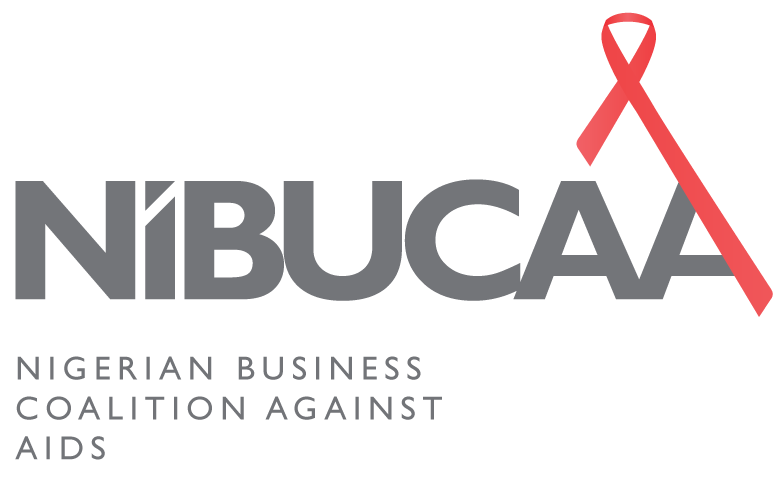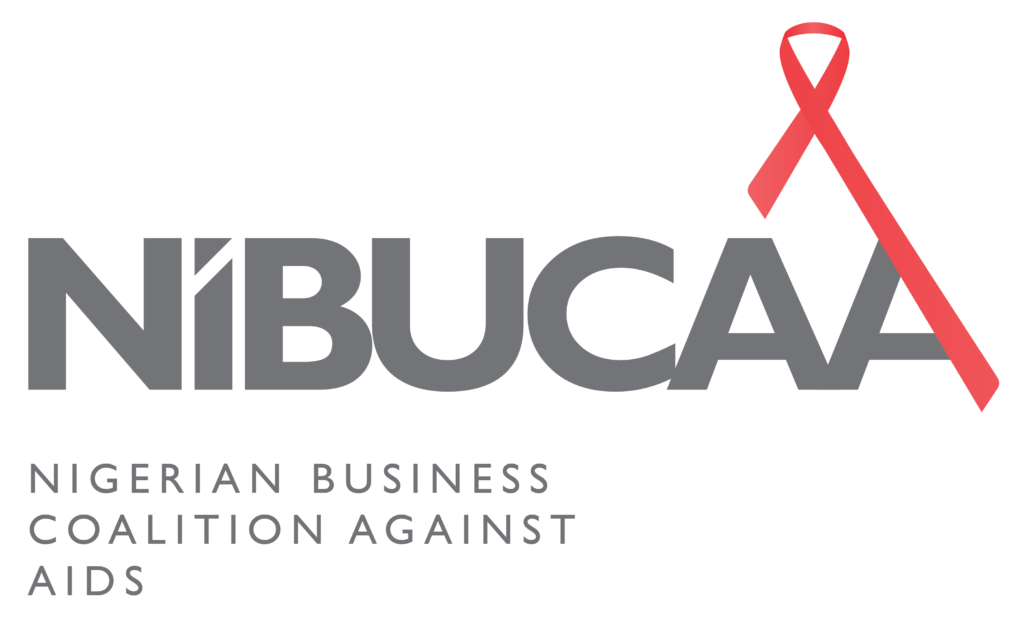World Health Day Webinar – Accelerating the impact of HIV response in the New Normal
World Health Day Webinar – Accelerating the impact of HIV response in the New Normal
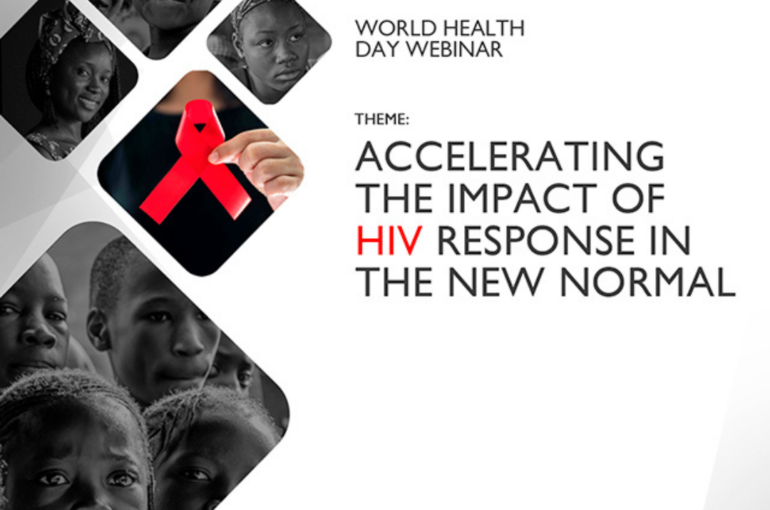
The Nigerian Business Coalition Against AIDS (NiBUCAA) commemorated the 2021 World Health Day by hosting a webinar tagged “Accelerating the Impact of AIDS Response in the New Normal”. The virtual conference created awareness on the need for continued investment in HIV AIDS response despite the COVID-19 pandemic to ensure that gains made in the fight against HIV preCOVID-19 were not lost. At the webinar, the panelists also discussed how private organizations could invest in the fight against HIV to achieve the national framework on HIV in Nigeria.
This World Health Day 2021, NIBUCAA brought together Sustainability, CSR, and health leaders in private sectors, Finance managers and directors, CEOs, Government officials, Civil society leaders, and representatives from donor agencies and diplomatic missions to foster conversation and share information on leveraging partnerships, mobilizing resources, and integrating the new normal into implementing high impact HIV interventions in Nigeria.
The Webinar Featured:

Zouera Youssoufou
The MD/CEO of the Aliko Dangote
Foundation as keynote speaker.
Panelists at
the event included Tope Adeniyi, CEO, AXA Mansard Health, Dr Akinwunmi Fajola, Regional Community Health Manager, SHELL Nigeria, and Dr Okuns Ohiosimuan, Corporate Medical Services Manager, Nigeria LNG Limited.

The CEO of NiBUCAA, highlighted the need for both the public and private sectors to work together to end HIV and AIDS while giving his welcome note at the webinar. He said,” Just like COVID-19, HIV/AIDS directly impacts the development of nations. HIV AIDS is not just a health issue; it is a development and economic challenge.” He also spoke on that in line with this year’s World Health Day theme of a Fairer Healthier World, we need to reduce inequalities that continue to drive HIV/AIDS in our communities.
KEYNOTE SPEAKER
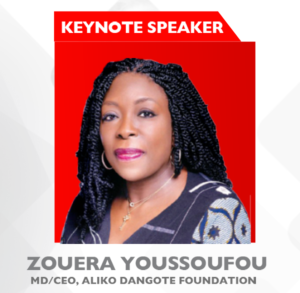
Zouera Youssoufu
MD/CEO, Aliko Dangote Foundation
Zouera’s speech focused on the need for continued investment in HIV AIDS response despite the COVID-19 pandemic to ensure that gains made in the fight against HIV pre-COVID-19 were not lost”
Key Points
• This is the first time the world would
have a pandemic such as this; the
Covid-19 has displaced every health
dollar towards itself and has undercut
recent health gains.
• NIBUCAA sets up the HIV Trust Fund
to ensure that the private sector sets
money aside to lead interventions
against HIV/AIDS through awareness,
education, and testing.
• We need more testing, prevention,
and conversation around HIV/AIDS so
that people are informed and educated
appropriately.
• We need to focus on Prevention of
Mother to child transmission and never
relent in the fight against HIV/AIDS.
• The eradication of HIV/AIDS requires
collective support from everyone.
PANEL SESSION 1
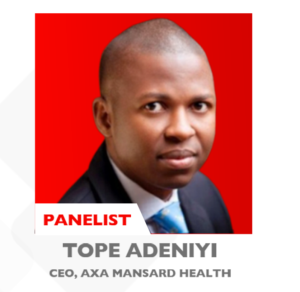
Tope Adeniyi
CEO, AXA Mansard Health
Blueprint for integration of HIV into health insurance scheme.
This session focused on Policy responses and coverage for HIV-related healthcare needs for people living with HIV and discussion on industry actions and implementation steps for successful integration of HIV services into health insurance schemes.
Key Points
• Countries that have achieved universal
health coverage have only achieved
this through effective health insurance.
Everyone deserves a good health care.
HIV is a disease that can be managed
and not a death sentence.
• We need to have good quality data,
this is the first area that drives health
insurance or any class of insurance; the
data of the burden of the diseases, the
data of the burden of the geographical
spread and the data of the demography
of the diseases.
• Data is the very cardinal point that
enables health Insurance Integration into
any disease, it helps insurance companies
plan the premium appropriately and cater for testing and treatment
effectiveness.
• Insurance represents a very effective
channel to carry out prevention through
education and early test detection, for
instance, annual health check is inclusive
in the Axa health insurance package.
• Insurance can demystify HIV as part of
the routine check instead of a stand -out
test.
• In conclusion, it is a collective effort, HIV
coverage should be included in insurance
both in public and private systems, this
way, we are promoting an excellent
sense of care and ensuring that we have
a healthier nation.
PANEL SESSION 2

Dr Akinwunmi Fajola
Regional Community Health Manager, Shell Nigeria
Scaling Up Effective Interventions for HIV/AIDS response In the New Normal
This session provided insight on the need to scale up systemic high-impact programs that are designed and delivered to ensure equity in access to HIV information, prevention, treatment, and care. The conversation also focused on programmatic coverage, impact, and sustainability to achieve an HIV-free Nigeria while highlighting Shell’s success on HIV interventions and plans to build on this success in the new normal.
Key Points
• Communication, awareness, social
mobilization, and reaching priority
community of people are keys scaling
up effective interventions in the new
normal.
• Shell’s focus of intervention was in the
Niger Delta for the project; Niger Delta
AIDS Response Project which started in
2008-2013.
• Critical issues were in that Zone were:
limited access to HIV prevention, care
and treatment at the primary level,
poverty and low health resource
capacity to deliver HIV services,
amongst others
Shell’s Response

Shell established high-quality HIV/AIDS services at supported facilities, also collaborated with other stakeholders to use HIV/AIDS entry point to strengthen health care systems. With this response, Shell was able to contribute to HIV/AIDS national scale-up response and build the capacity of health workers in communities.
• The pillars of sustainability for an effective
intervention include Community
involvement, Communication, Service
integration, Partnership, Monitoring and
Evaluation, amongst others.
· We need to unlock opportunities using
technology and expand our testing.
• To scale up effective interventions in our
society, there has to be a coordinated
response across sectors and there
should no barrier to accessing HIV care
and treatment. We need to build systems
not silos.
PANEL SESSION 3
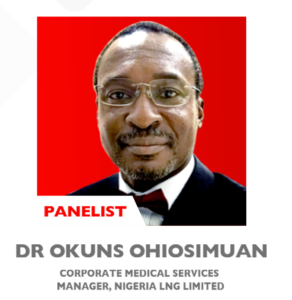
Dr Okuns Ohiosimuan
Corporate Medical Services Manager, Nigeria LNG
Maximizing the Role of Strategic Partnerships in HIV/AIDS response
This session focused on the need to define and strengthen strategic partnerships to galvanize resources and actions in response to the HIV/AIDS epidemic.
Key Points
• Data is instrumental to getting partners
willing to invest in HIV/AIDS response.
• Nigeria has never raised money within
a short time for a single health cause
as it has done for Covid19 and if a
quarter of the money raised for Covid
can be raised for HIV and other health
challenges, most of the problems would
have been solved.
• While we need to focus on rendering
people into a non-transmissible state,
no aspect of HIV management and
prevention is less than the other,
education is important and data has to
be shared
• There must be clear leadership,
• It is not only the big players that should
be involved in the response, Everyone
has to be involved.
• Relevance has to be shown, people have
to see the link between the healthy
population and how their businesses
thrive.
• Those who are implementing must get
data and show what lessons have been
learnt and what can be done differently.


